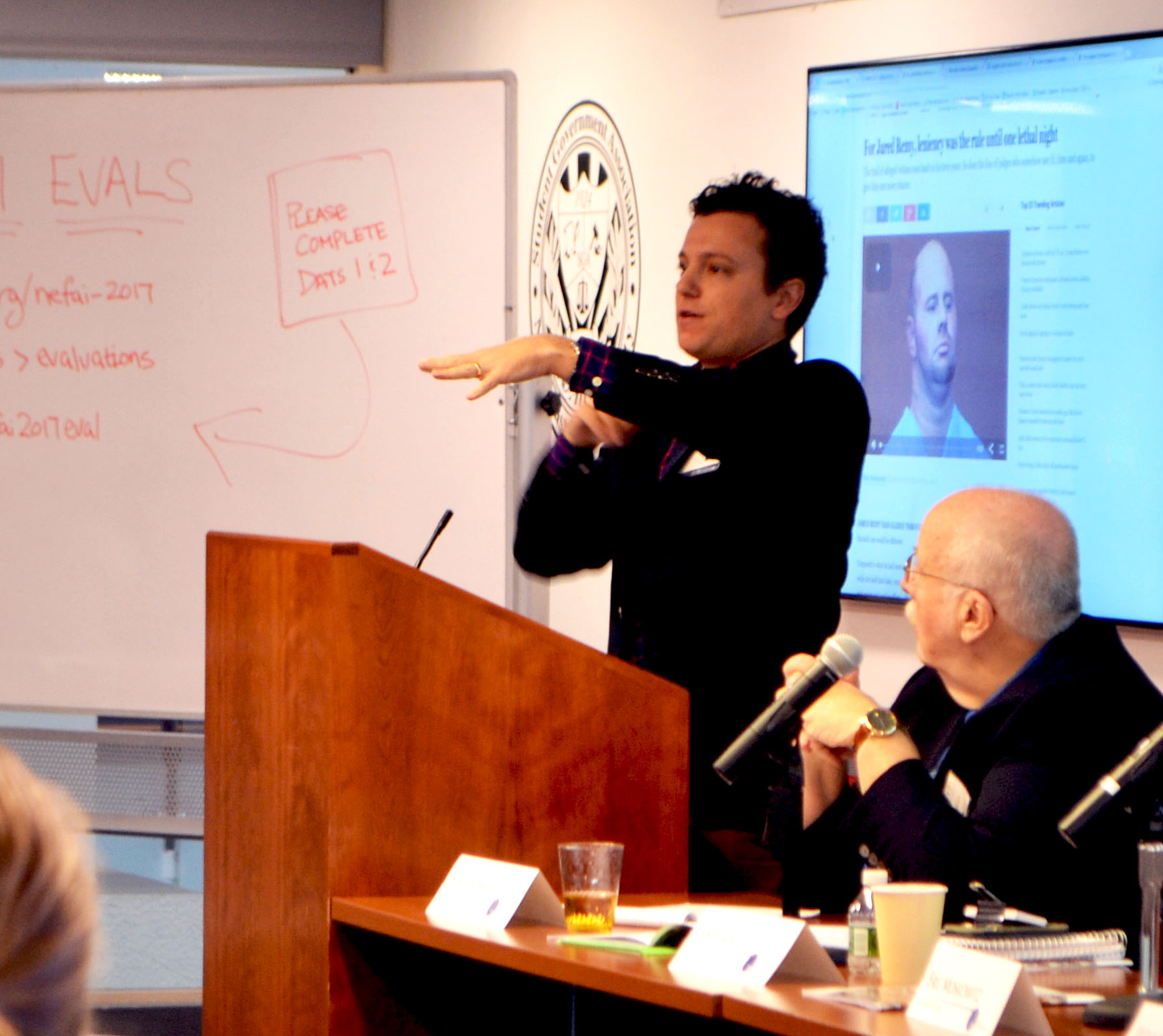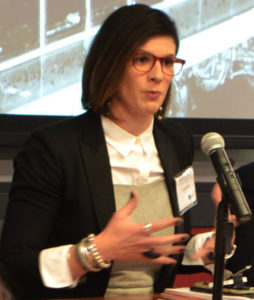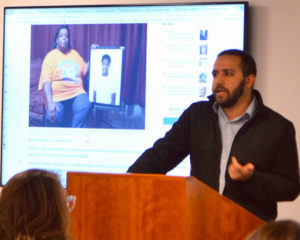
‘Face to face … you have more time to improvise and explain your reasoning. Find common ground, do your homework and don’t ask the hardest questions first. If you are prepared, you can often find common ground.’
— Eric Moskowitz,
Metro reporter,
Boston Globe
Panelists share tips
on how to enlist, engage news sources
By Nadine El-Bawab
Bulletin Correspondent
“When you take time to build a relationship with someone … and you care about getting the story right, they become invested in your story … When you are willing to be human, people actually trust us,” Wesley Lowery, a national reporter with The Washington Post said during the New England First Amendment Institute’s panel discussion on “Effective Sourcing and Getting Those Sources to Talk.”
Lowery and two other panelists drew from their professional experiences working with sources as they discussed navigating relationships with sources and provided tips about what reporters should do and what they should avoid.
Lowery focused on the importance of establishing a strong relationship with short-term and long-term sources.
He also talked about the importance of extending relationships with sources.
“There is a huge advantage of calling again on the second day and having a real conversation with them,” he said.
Lowery said he likes to “keep a lot of balls in the air,” but he also provided tips on getting more time to work on stories.

— Cindy Galli,
Senior investigative producer,
ABC News
“I’ve had to train myself to not run to my editors whenever I get an idea for a story and that buys me time. If they don’t know it exists, they can’t rush me into writing it,” he said.
Eric Moskowitz, a reporter with The Boston Globe who worked with Lowery when he was at the Globe, recounted his path to becoming an investigative journalist.
“I started (as) a sportswriter. My background is mainly a feature writer. I considered investigative reporting to be a high calling. There wasn’t a secret handshake … to becoming an investigative reporter … It was really a matter of persistence,” he said.
Moskowitz mentioned the three questions he thinks about when he stumbles on what he thinks is a story: “Who should you be talking to for this story? How do you get them to talk? How do you get them to share the more interesting or salient things ever?”
He also discussed how he sometimes contacts sources.
“Sometimes a call can be so jarring. So sometimes I write a letter (to the potential source) … A good percent of the time I have gotten calls or emails,” he said.
Moskowitz said phone calls aren’t always the best way to interviews sources.
“Face to face … you have more time to improvise and explain your reasoning. Find common ground, do your homework and don’t ask the hardest questions first. If you are prepared, you can often find common ground,” he said.
He also suggested taking a car ride with sources when you can.
“When you are in a car with somebody there is a different sort of tension or connection and it is easier for people to share,” Moskowitz said.
Cindy Galli, a senior investigative producer with ABC News, said she has been a consumer investigative reporter for 24 years.
“This is kind of the best time to be talking about sourcing. All of our news – coming from big and small outlets — is from sourcing,” Galli said.

“When you approach someone, be human and be honest … (and) don’t let it be final, don’t turn your back on your sources. The person you brought into this, they are going to continue to live this, so don’t turn your back on them,” she said.
Most important is listening to what your source has to say, she said.
“You don’t want to give people the impression that you are thinking of the next thing. Just listen and it is amazing what happens … (when you are) not writing verbatim questions,” Galli said.
The panel discussion took place Tuesday, Oct. 31, at Northeastern University.
